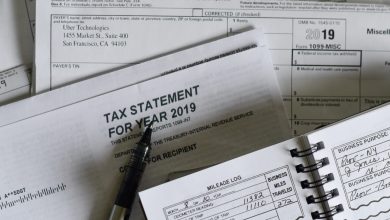What Are the New Tax Laws for 2019 Filing?

There are going to be crucial new tax laws for 2019 filing (which is due this April). Taxpayers across all income levels and brackets are going to witness those changes. One of the most important ones is the modified 2020 standard deduction. Yet there are many other opportunities for consumers to save money and lower their tax bill.
However, these rules and laws are complicated and tedious, to begin with. Consequently, taxpayers can easily miss certain credits and deductions when they file. In addition, many income levels and thresholds are tied to inflation, which changes every year. This makes it even more difficult to keep up with tax rules.
Nevertheless, filing your returns is certainly a manageable task. After all, you do it each year. When individuals and households understand how they can take advantage of the modified tax laws, the savings are worthwhile, especially as gas, groceries, rents, and other living costs go up due to inflation.
New Tax Laws for 2019 Filing: Adjustments and Inflation
When taxpayers send their returns to the IRS this year, certain things will change. For example, households and individuals can claim a bigger 2020 standard deduction.
Equally as important, their tax brackets are going to vary in comparison to the 2019 filing season. A lot of this is due to inflation. Naturally, when the cost of living goes up, your expenses and deductions are going to follow suit.
The 2020 Standard Deduction
A deduction is an amount that you can deduct from your taxable income. Medical costs, retirement plan contributions, and business expenses are all tax deductions. Under the new tax laws for 2019 filing, the IRS will allow payers to claim more deductions. To clarify, the April 2020 standard deduction for single and married filers are $12,200 and $24,400, respectively.
They increased by $200 and $400 from the previous year, in that order. For example, a single individual lives alone and makes $1,500 per month (or $18,000 per ear) through a part-time job. They also take two classes a week as part of an undergraduate studies program.
Initially, before the part-time student claims any deductions, their tax bill is $2,160 (12% of $18,000). However, the payer spent $5,000 during 2019 to take care of on-campus housing, books, and stationary. Health insurance premiums and copays cost them another $3,000.
Since educational and medical expenses are tax deductions, the student can deduct the $8,000 from their income. In turn, they only owe $1,200, which is 12% of their $10,000 taxable earnings (after deductions).
New Income Levels
When it comes to brackets, the IRS is also changing the 2019 tax year thresholds. Under the U.S code, the taxable percentage of someone’s earnings goes up when their pay increases. Brackets determine the income ranges and the percentages that taxpayers owe at each level.
Going back to the college student, let’s say that they had another $350 in deductions, which makes their earnings $9,650. Single filers who made $9,525 or less during 2018 were in a lower bracket when they filed in 2019 and had a 10% tax rate.
The student’s annual paycheck is just above the threshold. That is to say, they still had to pay 12%. Nonetheless, the payer would move to the 10% bracket in 2020 because the income threshold for it increased to $9,700, which is above what the student earned.

The 2020 level will rise for taxpayers across all brackets and for both single-person and married households, regardless of whether the latter file jointly or separately. In other words, more people could fall to a lower bracket (i.e. owe a smaller percentage) or avoid moving to a higher one (and pay a bigger portion of their earnings).
Inflation
The IRS adjusts these figures ever year to account for inflation. Since the cost of living tends to go up every year, they modify income brackets and deductions in order to account for rising prices.
If you live abroad, you’re in luck. The foreign earned income tax credit will increase from $103,900 to $105,900. To clarify, this is the maximum amount that U.S citizens who live internationally can make without owing any taxes.
Those who adopt a child may also claim up to $14,080, or $270 more than they did last year. However, the IRS is not going to adjust gift exemptions, capital gains taxes (on stock market returns), student loan payments, and retirement proceeds for inflation.
Above all else, the new tax laws for 2019 filing are going to impact health care costs and medical expenses.
Taxes and Your Health
If you own or manage a health savings account (HSA), between $2,300 (minimum) and $3,450 (maximum) of your contributions were deductible during 2018. When you file for 2019 this April, each side of the range will increase by $50. That is to say, you may deduct $2,350 to $3,500 of your HSA deposits from your income.
Additionally, for 2019, your employer can reduce up to $2,700 from your paycheck for similar medical plan contributions. This is also $50 more than the previous year’s limit.
Lastly, there will be no mandatory penalty that uninsured taxpayers have to pay. Previously, if you failed to maintain medical coverage for a certain amount of months or didn’t enroll in a plan, you incurred a $695 minimum fine.
2020: Changes to Your Tax Bill
Apart from the highlighted adjustments, there are a few new tax laws for 2019 filing. The 2020 W-4 changes will impact the amount that your employer can withhold from paychecks. The government is also modifying health insurance premiums and Medicare/Medicaid payments because of inflation.
Other than that, the most important changes include a larger 2020 standard deduction and higher income brackets. Similarly, taxpayers can claim more credits on foreign earnings and medical plan contributions, alongside a few other items.

While these small changes and adjustments are difficult to track, they could save you several hundreds or thousands of dollars. This is especially true when you move to a lower bracket or earn a few tax credits.
Keep in mind that the IRS wants you to keep up with inflation. As your bills and daily expenses go up, you also deserve a raise or a (tax) break.



